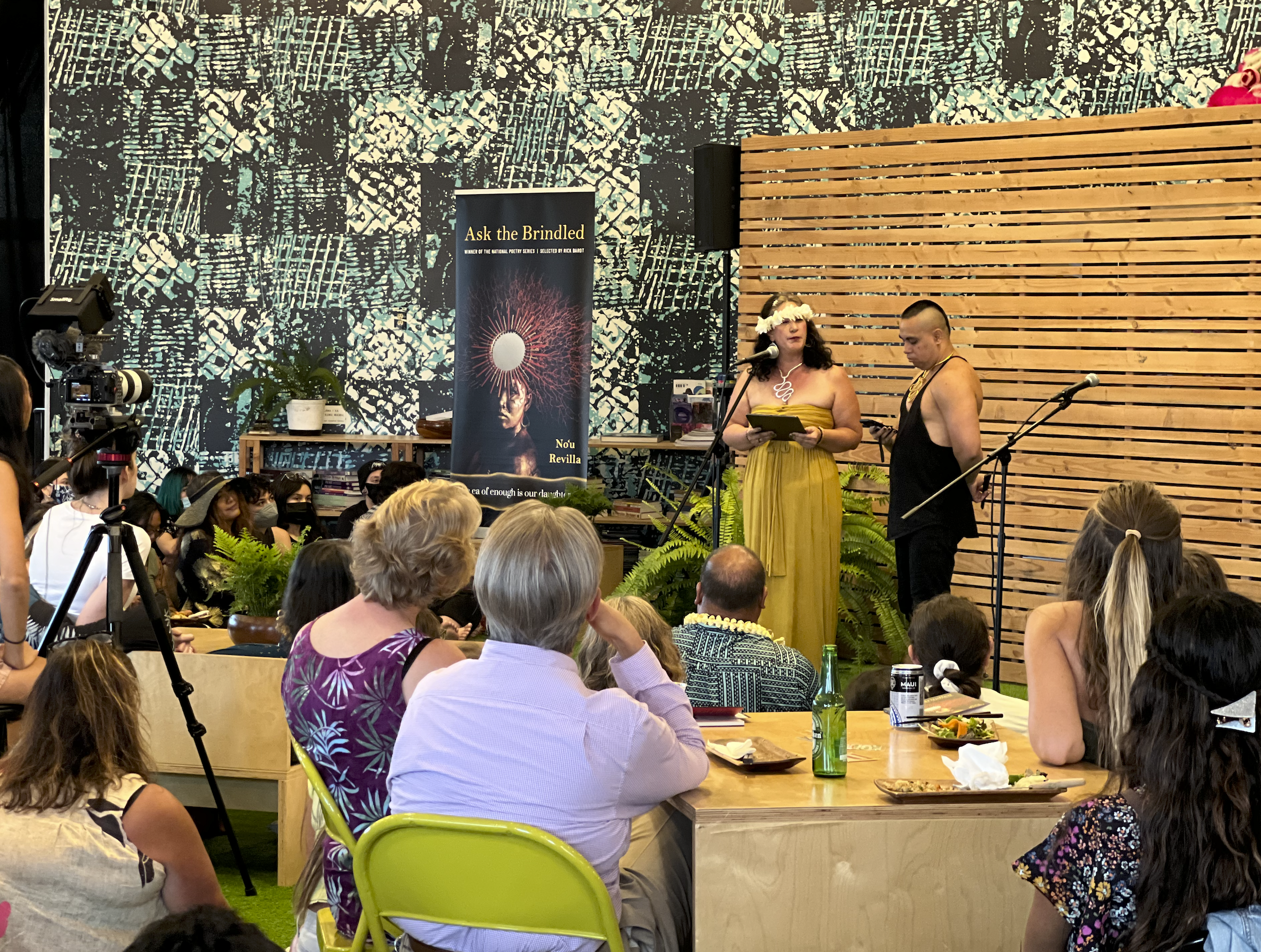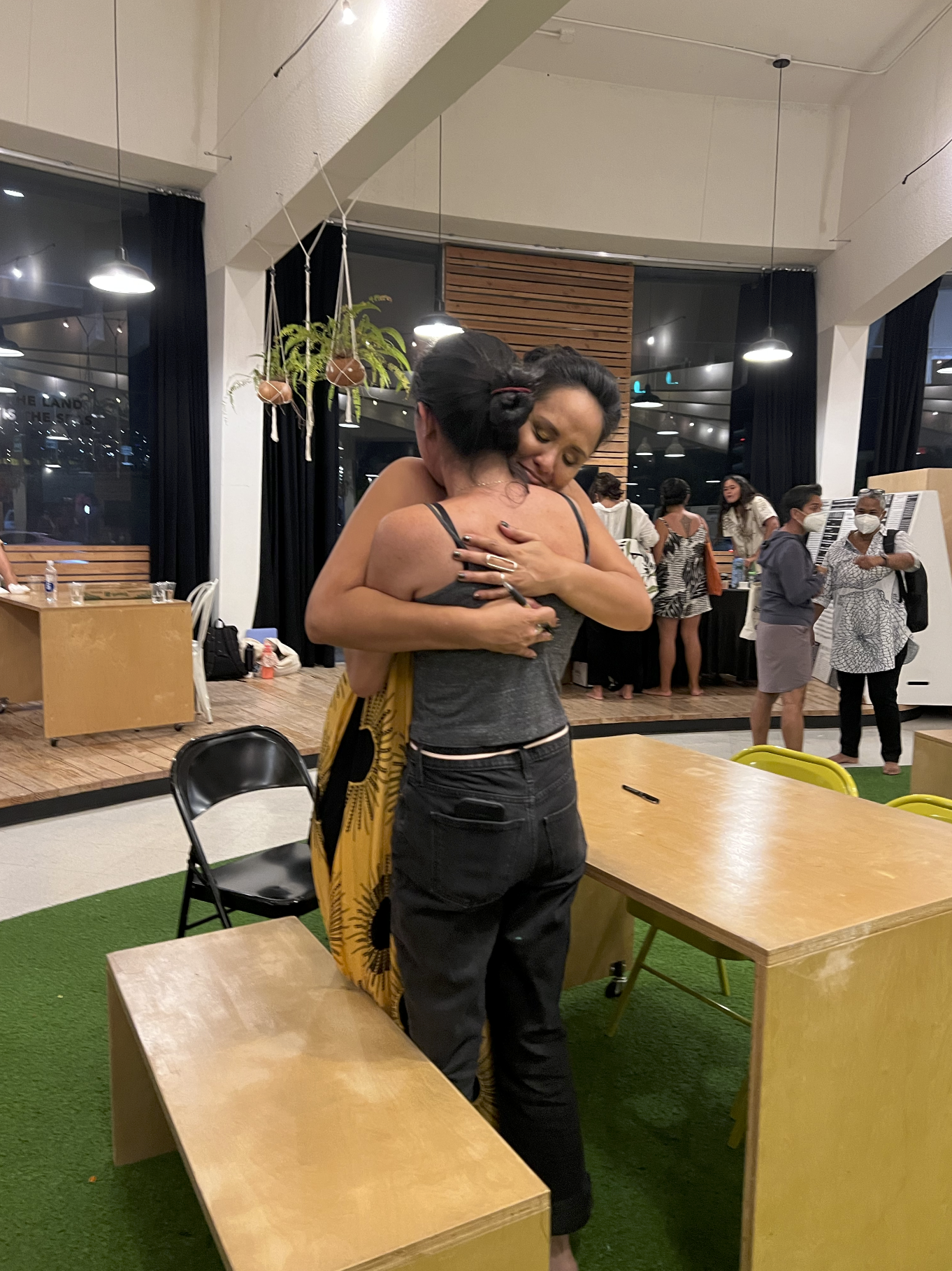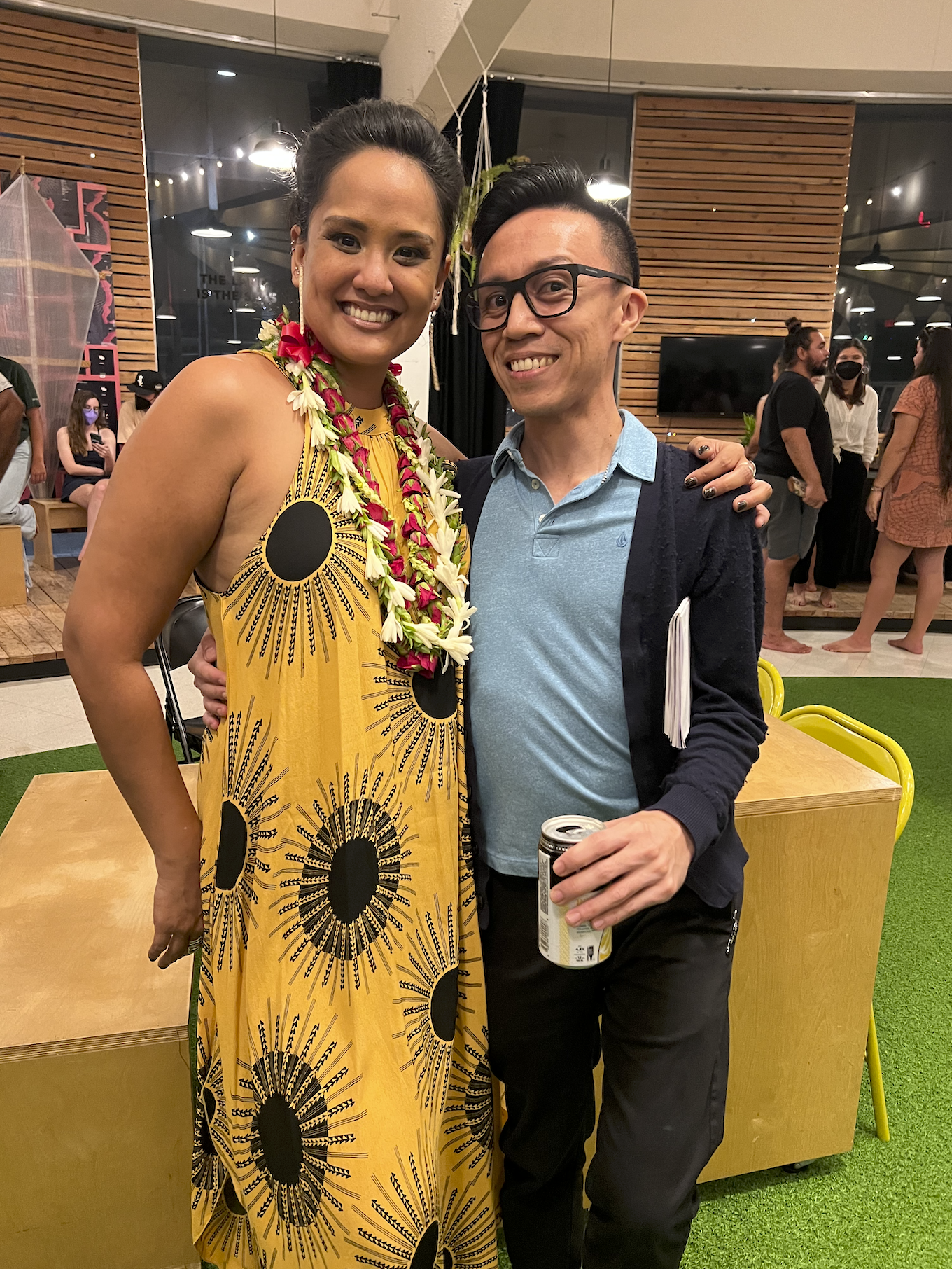Varsity Building Gladly Haunted by Sexy Pack of Moʻo
8 September 2022
Review of Noʻu Revilla’s Ask the Brindled book launch
Evocation and provocation collided beautifully i Ka Waiwai for the much anticipated book launch of Noʻu Revilla’s Ask the Brindled (Milkweed Editions), the 2021 National Poetry Series winner selected by Rick Barot. Noʻu has previously served as Hawaiʻi Review’s faculty advisor. And while this shamelessly glowing review might be colored by our relationship, those who attended this launch and are familiar with Noʻu’s work would scarcely call this review an exaggeration.
Noʻu Revilla performs from her book, Ask the Brindled, to close the event.
Thursday afternoon classes and staff meetings were let out early so that folks could arrive in time for a sunset gathering that brought together old and new friends of the local literati and the UH community. Incidentally, part of the fun before the event started was to wonder which of its star-studded attendants were on the program, many of them accomplished artists and scholars themselves. You might’ve mingled on one side of the room with an award-winning photographer, and then moved a few folks over to discuss forthcoming anthologies with professors emeriti, and again to find poets, musicians, and even the occasional baby—wide-eyed writers in the making.
The event readings kick off!
An eager line of guests removed shoes and slippers at the door to mingle with good food and drink, friends and family, and an air of mele Hawaiʻi provided by Hawaiʻi Public Radio’s DJ Mermaid, giving all the atmosphere of a local weekend party starting too early for its own good.
Though a celebration mainly of Ms. Revilla’s debut collection, the main event bore all the marks of a birthing ceremony attended by more than a few representatives of Hawaiʻi’s intellectual genealogy—and more than that of a book. A delightfully sassy duet between the evening’s headliner and Jocelyn Ng kicked off an evening of “sly reproduction” by an impressive performer lineup that continued with Anjoli Roy, Brandy Nalani McDougall, (Hawaiʻi Review’s own) Māhealani Ahia & Kahala Johnson, and Lyz Soto; all culminating, of course, with a performance by Noʻu herself. All performers evoked past and present Mana Wāhine, moʻo and moʻolelo, queers and queens, and an almost indulgent feast of word and memoir that set locked ears and eyes firmly upon proud, provocative futures.
Hawaiʻi Review editor expresses her aloha for Noʻu Revilla during the book signing.
Finally, wrapped in flowing gold and bedecked in a fragrant mane of lei she received throughout the night, Noʻu’s performance lit fires through a spell-bound audience that broke the silence only to offer affirming snaps, hearty laughs, and vocal exclamations that gave her work a kind of public punctuation that paper struggles to provide.
Hawaiʻi Review editor and Noʻu Revilla are absolutely glowing here.
On the one hand, Noʻu’s individual performance was as poignant and punchy as we always expect; on the other, we can all agree that of course this was a resounding success characteristic of every other accolade that this ʻOiwi kamahaʻo snatches for all our inspiration. This is not to imply that Noʻu’s work is unsurprising—far from it! But, rather, that a reading public knows an upward career when they see one. And we know, of course, that more books, awards, and performances are on their way for us to celebrate together again.
If this event was billed as a book launch, then it might have inadvertently undersold itself as a community gathering, and more so as a performance. It gave far more than one would expect—and we’re not talking about the raffle, either. To say that moʻo haunted Mōʻiliʻili Thursday night would be an understatement. By the end of the program, a good mixture of laughs and tears seemed to shake off the mid-century, concrete ghosts of the Varsity Building. And crumbling Modernism gave way to that special kind of hoʻi that one feels at momentous Hawaiian events—ones that feed us with more than food and invite us as we leave to be, eat, and, in this case, write better from then on.
Hawaiʻi Review team gathers at the end of the evening to express their love and thanks to Noʻu Revilla.
Watch the event here, documented by the UH Speaker Series





